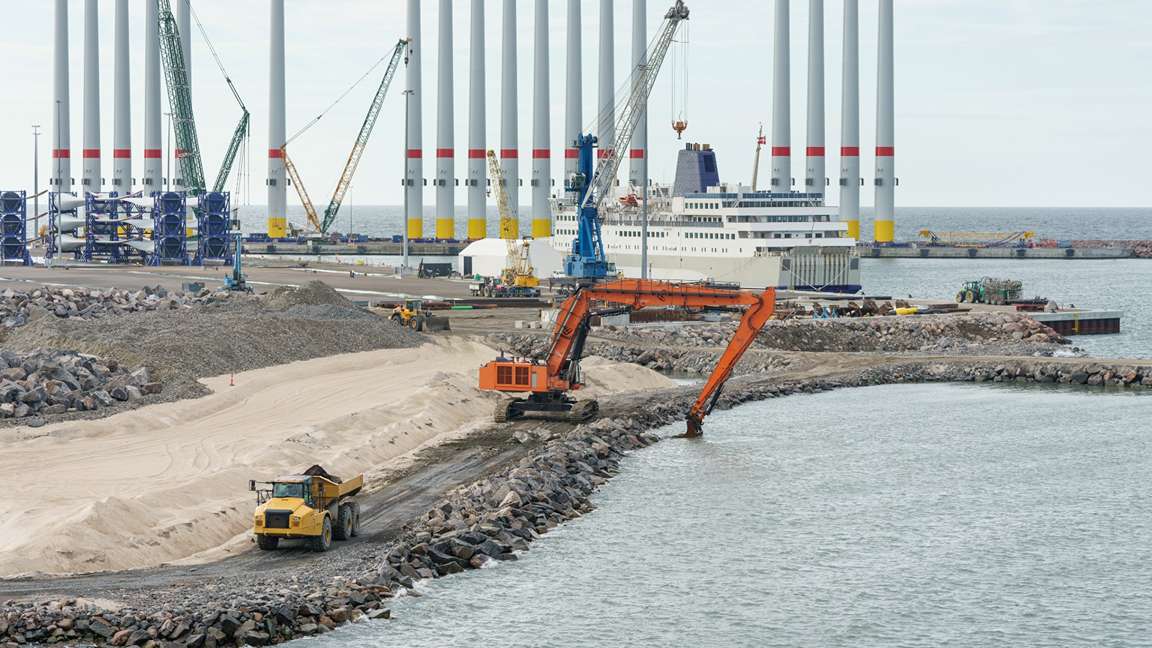- Introduction
- Why Sustainable Dredging Matters
- Course Objectives: Integrating Sustainable Dredging into Practice
- Expert-Led Learning: Real-World Applications of Sustainable Dredging
- Tools and Techniques: Driving Sustainable Dredging Forward
- Event Details
- Why Attend: The Benefits of Sustainable Dredging Expertise
- Conclusion
Introduction
Dredging is a critical component of modern water infrastructure, supporting navigation, flood control, and urban development. However, traditional dredging methods can have significant environmental and social impacts, including the disruption of ecosystems and pollution. As industries and governments seek greener solutions, sustainable dredging has emerged as a vital approach to balancing development needs with environmental stewardship.
To address this growing demand, the “Dredging for Sustainable Infrastructure” training course is making its debut in Asia for the first time. Scheduled for 18–20 November 2025 at the Holiday Inn Atrium Hotel in Singapore, this event will provide professionals with the knowledge and tools necessary to implement sustainable dredging practices in their projects.
Why Sustainable Dredging Matters
Sustainable dredging ensures that infrastructure development meets operational goals while minimizing harm to natural systems and local communities. Poorly managed dredging projects can disrupt marine life, degrade water quality, and exacerbate sediment pollution, ultimately leading to long-term environmental harm.
By adopting sustainable dredging practices, stakeholders can develop projects that align with global climate action goals, biodiversity conservation, and socio-economic resilience. This approach not only addresses regulatory requirements but also enhances public trust, improves project efficiency, and protects valuable ecosystems.
Course Objectives: Integrating Sustainable Dredging into Practice
The primary focus of the course is to help participants understand how sustainable dredging can be integrated into all phases of infrastructure planning and execution. Key areas of learning include:
- The role of sustainable dredging in global development: How environmentally responsible dredging can support sustainable infrastructure and community welfare.
- Designing resilient water infrastructure: Approaches to plan and implement projects that align with natural processes and socio-economic factors.
- Assessing environmental impacts: Methods to measure and enhance the positive effects of dredging while minimizing adverse outcomes.
- Modern equipment and sediment management solutions: Tools that support effective, eco-friendly dredging operations.
- Knowledge and decision-making frameworks: How to choose the right strategies, control risks, and ensure project success using best practices in sustainable dredging.
Expert-Led Learning: Real-World Applications of Sustainable Dredging
Participants will benefit from the expertise of industry leaders such as Van Oord, Boskalis, and DHI. These organizations are at the forefront of sustainable dredging solutions, and their specialists will share insights into advanced methodologies, environmental assessments, and project management techniques.
Through workshops and case studies, attendees will explore practical applications of sustainable dredging, learning how to implement strategies that reduce environmental footprints while delivering infrastructure that meets both operational and regulatory standards.
Tools and Techniques: Driving Sustainable Dredging Forward
The course emphasizes actionable solutions for professionals involved in water infrastructure projects. Key topics include:
- Advanced dredging equipment: Machines and systems designed to reduce fuel consumption, lower emissions, and minimize seabed disturbance.
- Sediment management practices: Techniques to reuse dredged material, contain sediment plumes, and protect aquatic ecosystems.
- Resilience strategies: Planning for climate change, rising sea levels, and extreme weather through robust and adaptable infrastructure.
- Cost-effective solutions: Balancing budget constraints with environmental goals to ensure sustainable outcomes without compromising project timelines.
These tools and methods will enable professionals to implement sustainable dredging practices that benefit both the environment and project stakeholders.
Event Details
- Dates: 18–20 November 2025
- Location: Holiday Inn Atrium Hotel, Singapore
- Target Audience: Procurement heads, engineering managers, project contractors, government buyers, and professionals focused on sustainable infrastructure development.
This training is ideal for those seeking to stay ahead in an industry where sustainable dredging is becoming essential for regulatory compliance and corporate responsibility.
Why Attend: The Benefits of Sustainable Dredging Expertise
Attending this course offers multiple advantages:
- Gain practical knowledge of sustainable dredging techniques and technologies.
- Discover how to evaluate environmental impacts and implement eco-friendly solutions.
- Connect with global experts and peers to exchange ideas and best practices.
- Access tools for sediment management, risk control, and resilient project planning.
- Position projects to meet sustainability standards and stakeholder expectations.
Professionals who adopt sustainable dredging methods will be better equipped to drive projects that protect ecosystems, optimize resources, and deliver long-term value.
Conclusion
As infrastructure demands grow, adopting sustainable dredging practices is more important than ever. This training course presents a unique opportunity to learn how environmentally responsible dredging can support resilient, cost-effective water infrastructure that aligns with global sustainability goals.
Join industry leaders and fellow professionals in Singapore this November to acquire the knowledge, tools, and networks necessary to shape the future of sustainable dredging.
